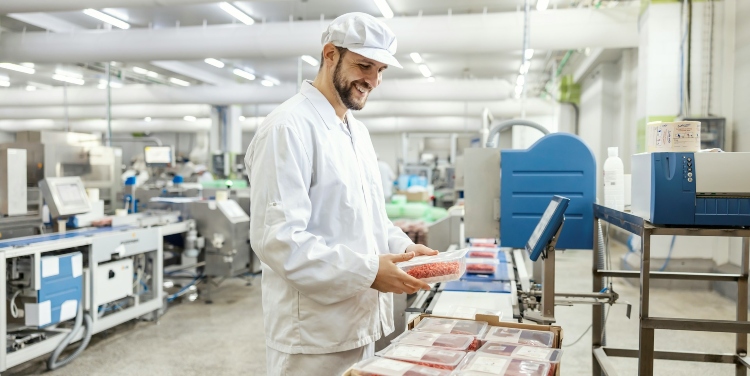The transportation of food and medicine is a critical component of global supply chains, ensuring the availability of essential goods that impact public health, nutrition, and overall well-being. However, the complexity of handling and transporting perishable food products and temperature-sensitive medicines presents unique challenges that could lead to public health risks and financial losses if not appropriately dealt with. To avoid problems like this, identifying the key challenges and how to deal with them is essential.
Temperature Control and Cold Chain Management Challenges
Both food and medicine require strict temperature control to maintain their safety and efficacy, but several challenges present themselves within the cold chain, including:
Temperature Fluctuations: Exposure to temperatures outside the recommended range during loading, unloading, or transit can compromise the quality of both food and medicine. The last thing you want is spoilage and the growth of harmful bacteria in food products or for medicines to lose their potency.
Infrastructure Limitations: In many developing countries or remote areas, the lack of reliable cold storage and refrigerated transport systems makes it difficult to maintain the cold chain.
Power Outages and Equipment Failures: Refrigeration equipment breakdowns, power outages, or human error can cause serious disruptions in maintaining consistent temperatures.
Solutions
The use of insulated packaging and real-time temperature monitoring devices, such as data loggers and IoT sensors, ensures you can better track temperature fluctuations throughout the supply chain. Another solution includes implementing backup power systems and contingency plans for cold storage facilities to address unexpected power outages or equipment failures. Finally, providing training to supply chain personnel on cold chain management ensures proper handling and reduces human errors.
Regulatory Compliance
Both food and medicine are subject to stringent regulatory frameworks, which vary by country and region. Remaining compliant does offer many challenges to businesses, but it is possible to overcome:
Navigating Complex Regulations: Different regions and countries have varying rules regarding the transportation of food and pharmaceuticals, making cross-border logistics a challenge. Failure to comply with these regulations can lead to shipment delays, product seizures, and legal penalties.
Documentation and Traceability: Ensuring proper documentation, including temperature logs, batch numbers, and expiration dates, is crucial for both food and medicine. Inaccurate or incomplete records can result in fines or recalls.
Evolving Standards: Regulatory requirements change frequently as new standards are introduced for safety and transparency. This necessitates constant adaptation by manufacturers, distributors, and transporters.
Solutions:
Start by staying updated on changing regulations and ensuring alignment with international standards (e.g., Good Distribution Practice (GDP) guidelines for pharmaceuticals and HACCP for food safety). This can include enrolling in industry-specific certification programs. As a bonus, this builds trust with consumers and regulators alike. With this covered, the next step to take is leveraging digital platforms for documentation and tracking to allow for more accurate record-keeping and faster compliance audits.
Security and Theft
Food and medicine are valuable commodities, which means lots of challenges involving theft, fraud, and security.
High-Value Targets: Medicines, especially those with limited availability or high demand, are at high risk of being stolen and sold on the black market. This can lead to significant financial losses and potentially dangerous counterfeit products entering the market.
Food Fraud: The growing issue of food fraud, where products are deliberately mislabeled or substituted with inferior ingredients, is another challenge during transport, especially for luxury items like seafood, olive oil, or organic produce.
Lack of Security: Not all transport companies invest in the necessary security measures, leaving shipments vulnerable to tampering or theft.
Solutions
GPS tracking is an essential system that can monitor the real-time location and detect any unauthorized detours or stops, enabling any potential attempt at thievery to be stopped much faster. Even with this, though, using tamper-evident packaging and seals can ensure that products are not compromised during transport. Developing and implementing strong security protocols, such as background checks for employees, secure loading/unloading procedures, and partnerships with trusted transport providers, is also another solution not to forget about.
Summary
The transport of food and medicine faces numerous challenges, from maintaining the cold chain to ensuring regulatory compliance and preventing theft. To successfully overcome these obstacles, businesses involved in transporting perishable goods must invest in technology, infrastructure, and robust protocols. By focusing on these areas, they can ensure the safe and efficient delivery of essential products while minimizing risks to public health and economic losses.
David Prior
David Prior is the editor of Today News, responsible for the overall editorial strategy. He is an NCTJ-qualified journalist with over 20 years’ experience, and is also editor of the award-winning hyperlocal news title Altrincham Today. His LinkedIn profile is here.












































































